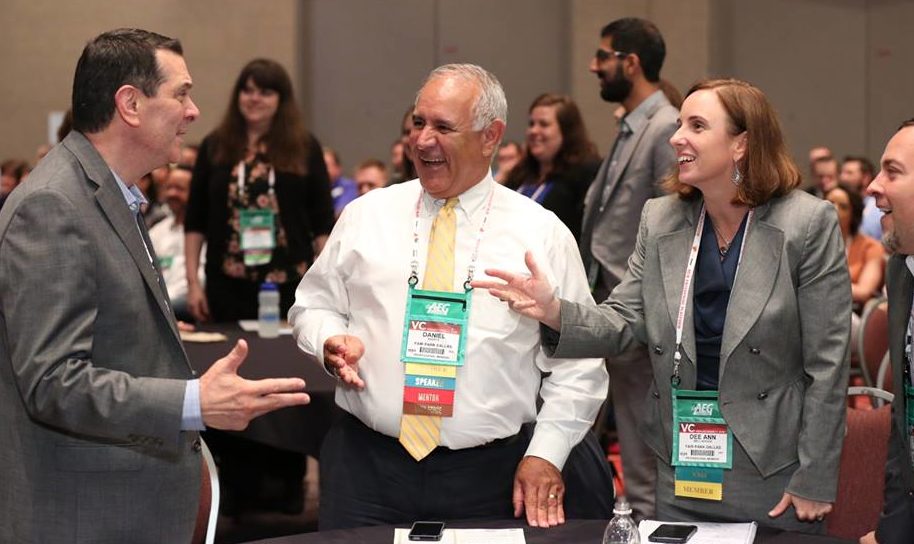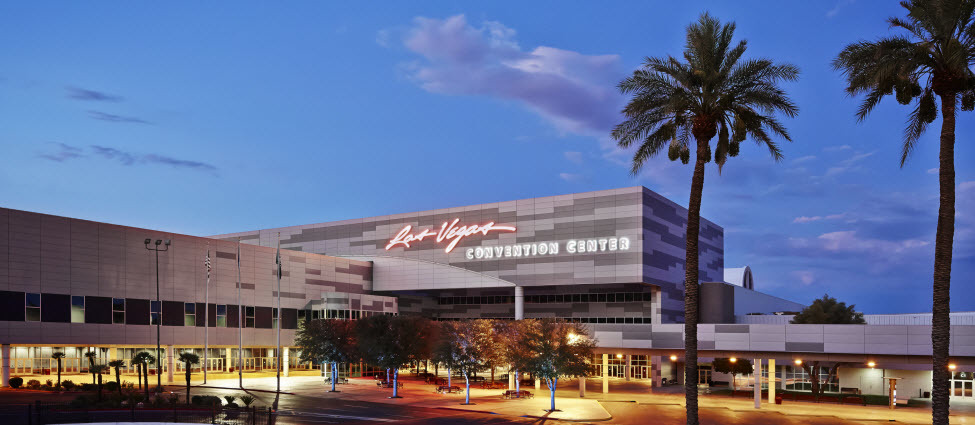Owensboro Convention Center Announces Promotions and New Hires
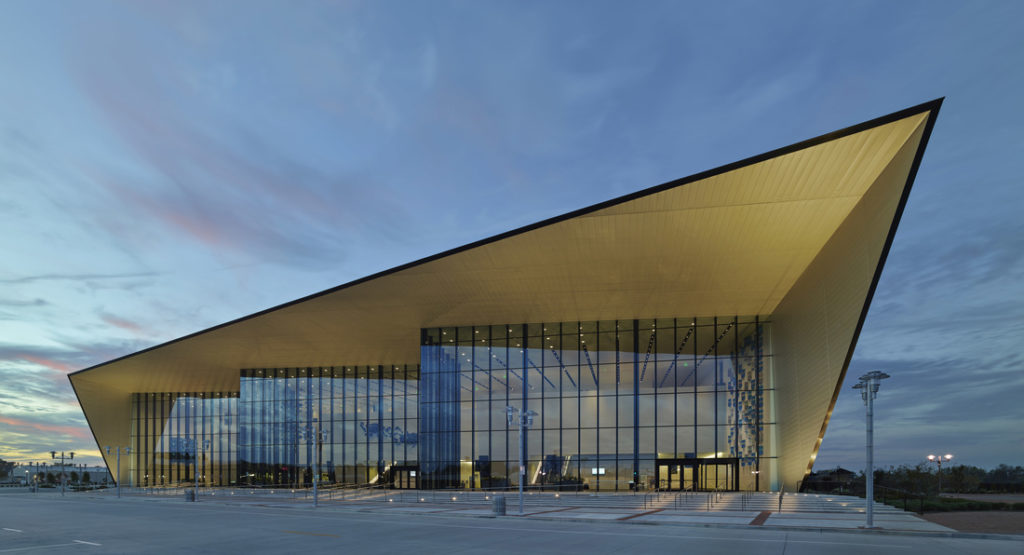
The Spectra Venue Management managed-Owensboro (KY) Convention Center announced the promotion of some current staff and welcomes some new members to their Owensboro team.
Jared “Buddy” McCarter has been promoted to executive chef. Always having had an interest in food, McCarter completed the Culinary Arts program at OCTC and went on to work as the Sous Chef at the Campbell Club for three years before joining the Owensboro Convention Center team in 2015 as Sous Chef. “I am looking forward to a long and productive career with the Owensboro Convention Center,” McCarter said about his new position.
Jim Riggs is now the director of the Owensboro Sportscenter. Riggs is a native of Pittsburgh, Pennsylvania and a graduate of Carnegie-Mellon University. He has managed a number of professional sports teams in the East Coast Hockey League, Central Hockey League, American Hockey League, and Arena Football 2 before coming to Owensboro. He has also served as a sales and marketing consultant for a number of teams in both the United States and Canada. “I’m excited about the opportunity to help grow the Sportscenter and bring a number of new events to the facility,” he said.
Cody Thomas is a new event supervisor. Thomas has a Bachelor’s degree in Accounting and Business Management from the University of Kentucky and a Bachelor’s degree in Organizational Leadership from Western Kentucky University. Previous experiences included being president of Kappa Alpha Order Fraternity, event coordinator with Owensboro’s Chapter of U.S. Bank Development Network, and interning with the Kentucky Mavericks.
Caleb Farkas joins the Owensboro Convention Center staff as the new ticketing manager and will oversee all ticketed events on OwensboroTickets.com. Farkas is originally from Muskegon, Michigan and graduated from Central Michigan University with his Bachelor of Applied Arts in Sport Studies. He has worked in ticketing for the sports and live entertainment industries for the past seven years including collegiate athletics, professional sports, and live events and shows. Most recently he worked for IMG in Coral Gables, Florida as a box office manager overseeing the ticketing for a variety of events; including PGA and LPGA golf events.
Your Membership, Your Future
IAVM has many resources available to our members, from our online member forum, VenueNet, to our Live Safety & Security training programs. We continue to develop important initiatives such as the Exhibitions & Meetings Safety & Security Initiative (EMSSI), an electrical power management program, and an economic impact calculator, all aimed at offering our members standards and best practices.
IAVM members are a global community of like-minded professionals that manage multi-million dollar venues and provide products and services that are instrumental in delivering exceptional experiences to millions of guests each year. IAVM has brought together thousands of brilliant individuals who have exchanged business ideas and are now better professionals because of the networking, education, and sharing of best practices.
But IAVM is more – we are a family – connections that begin between peers and colleagues but quickly grow into friendships. This is what makes IAVM membership unique.
We have overcome some real challenges in 2016, yet have generated many accomplishments, which will be shared with you in the weekly newsletter, IAVM News, in early January. Challenges are what make us strong, and overcoming those challenges are what make us stronger. So we choose to celebrate our successes, and we choose to celebrate you, our members. Without your continued support and dedication, IAVM would not be the diverse, respectable, and relevant association it is today.
For that, we thank you. And as we evolve and look forward to next year, ensure you have access to the resources that make you exceptional in the venue management profession!
AEG Facilities Celebrates Third Anniversary With LA Convention Center
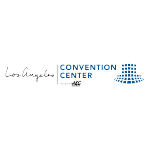 December marked AEG Facilities and the City of Los Angeles three-year anniversary of a successful partnership. The private and public entities have worked together to reinvigorate the Los Angeles Convention Center (LACC) and turn it into an excellent economic driver for downtown Los Angeles. Key highlights of the three-year partnership include record-breaking financial results, surpassing the City’s goal of building a financial reserve, new sales and marketing initiatives, and capital improvement projects upgrading the building.
December marked AEG Facilities and the City of Los Angeles three-year anniversary of a successful partnership. The private and public entities have worked together to reinvigorate the Los Angeles Convention Center (LACC) and turn it into an excellent economic driver for downtown Los Angeles. Key highlights of the three-year partnership include record-breaking financial results, surpassing the City’s goal of building a financial reserve, new sales and marketing initiatives, and capital improvement projects upgrading the building.
On December 8, 2013, AEG Facilities assumed management of the Los Angeles Convention Center. Since the transition, the LACC has reported increasing operating profits every fiscal year from $1.7 million in the first year of management to $8.1 million in 2016. In the span of three years, AEG Facilities has generated an operating profit of over $11.8 million after reimbursing the City of Los Angeles $4.6 million for the Department of Convention & Tourism Development (CTD) overhead. Additionally, AEG Facilities has surpassed the City’s initial goal of building a financial reserve of $2.1 million in five years with $6.1 million at the conclusion of 2016.
“The financial accomplishments of the Los Angeles Convention Center in these past three years are testament to an effective and efficient public/private partnership,” said Bud Ovrom, executive director of the Los Angeles Department of Convention & Tourism Development (CTD). “Revenues are up, expenditures are down and we have turned a profit every year. This is a partnership that is flourishing and we have the stats to prove it.” The financial success of the LACC is due to key operational improvements with increases in revenue from parking, food and beverage, event rental, and related revenues.
Since LACC’s transition to private management, AEG Facilities has developed a new approach to sales and marketing of the center. The convention center’s brand was re-launched via a new website and a more entrepreneurial approach has led to more events being booked. The LACC and the Los Angeles Tourism and Convention Board (LATCB) continue to successfully interface and partner to book citywide conventions and special events which provide a significant economic impact to the City of Los Angeles. Through this partnership, the number of citywide conventions has increased over 86% from the three years prior. “The relationships between Los Angeles Department of Convention & Tourism Development, AEG Facilities, and the Los Angeles Tourism and Convention Board have never been better,” said Jon Vein, president, board of Los Angeles Convention & Tourism Development Commissioners. “We have worked collaboratively in marketing and sales and after three years have seen our efforts result in increases in citywide convention bookings that drive material revenue/economic impact to the City of Los Angeles.”
Additionally, filming revenue from commercial, television, and feature film shoots has increased by over 20%, with over 100 film projects booked from 2013 to 2016. In regards to marketing, all social media channels for the LACC have consistently grown to support clients and the LACC brand. The LACC has also developed interactive floorplans and virtual tours, accessible on the improved website, that serve as helpful tools to meeting planners and clients.
Reaching $6.1 million in reserves and creating substantial operating surplus has created the opportunity to take on imperative capital and alteration and improvement projects. Between 2014 and the conclusion of this calendar year, $30 million will have been invested in the convention center in the form of completed and in-progress capital improvement and alterations projects funded through the City of Los Angeles and the annual operating surplus achieved through AEG Facilities’ management of the LACC. A few of these projects include the addition of 190 security cameras installed throughout the facility along with a modernized security command center, 20 magnetometers to further elevate safety and security procedures, installation of water saving toilets and urinals, carpet replacement in public spaces, and the re-landscaping of turf with 30,000 square feet of native and drought-tolerant vegetation to conserve water and aid with the Los Angeles drought, among other projects. “In accordance with best business practices, we believe in appropriating our operating surplus toward sustaining and improving the LACC facility,” said Brad Gessner, general manager of the convention center and senior vice president at AEG Facilities. “Since 2013, the LACC has completed and/or is in progress of over 40 capital and alteration and improvement projects to provide a modern, safe, environmentally conscientious, and competitive facility.”
Happy Holidays from IAVM
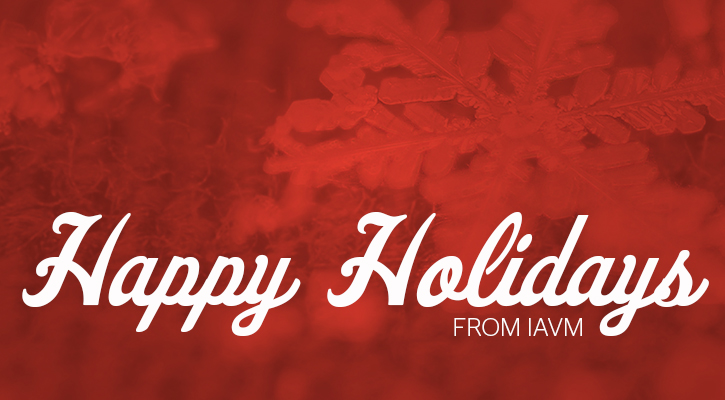
It’s hard to believe that the holiday season is upon us. Where did this past year go? It would be great if we had the space to reflect on all of the incredible things that you, our members, have accomplished this past year. So let me just say that in our newsletter of 2017, we will be doing a year-in-review presentation.
As our thoughts turn to gathering our families around us during this time of giving, your staff at IAVM wishes you a very happy and healthy holiday season… With time to reflect on all of the wonderful experiences we collectively have had in our industry, your IAVM family thanks you for inspiring others, becoming better leaders, and creating personal and professional relationships that will last a lifetime.
Happy holidays, and may your days be merry and bright!
Las Vegas Convention Center Launches Antenna Systems for Enhanced Mobile Wireless Experience
Imagine packing the power of 14 cell towers inside a single convention facility. That’s exactly what the Las Vegas Convention and Visitors Authority (LVCVA) has accomplished at the Las Vegas Convention Center (LVCC) with the launch of one of the nation’s largest Neutral-Host Distributed Antenna Systems (DAS) throughout the property.
Through a partnership with Cox Business/Hospitality Network and InSite Wireless Group, LLC, clients and guests visiting the LVCC will benefit from state-of-the-art wireless voice and data cellular services that are now being transported over the new DAS. This development will provide wireless subscribers a better convention experience as they navigate the LVCC’s 3.2 million square feet, or roughly 26 football fields, of space.
“Today’s world is a wireless world, and to provide a first-rate customer experience, we have to have the infrastructure to ensure visitors have seamless coverage and service,” said Hugh Sinnock, LVCVA’s vice president of customer experience. “Investments like this will continue to provide our clients with the best possible tools for conducting business.”
“With the support of our partners at InSite, we’ve constructed a neutral host DAS infrastructure that will provide reliable, high-speed cellular connectivity within the Las Vegas Convention Center,” said Derrick R. Hill, vice president of Cox Business and Hospitality Network in Las Vegas. “As a result, cell providers will be able to give their customers improved coverage and this will enhance the overall convention center experience for attendees and guests.”
In addition to the center’s existing high-density Wi-Fi network, the capacity of the new cellular DAS is immense. With an ability to deliver service to more than 100,000 guests simultaneously, visitors to the LVCC can expect faster download speeds on their smartphones than typically provided on most corporate networks
Four major U.S. wireless carriers have signed agreements to launch this service. The system can simultaneously accommodate traffic from all of the participating wireless carriers; serving the exploding wireless voice and data demands that are common at today’s high attendance, technology-rich trade shows and events.
The approximately $18 million DAS project took three years to plan and 10 months to build. The job was so large that four separate installation contractors split up the work, tackling different areas of the campus simultaneously. In addition, various specialized construction trades from HVAC to electrical to fire suppression to custom fabricated steelwork were used to support the massive equipment and antenna infrastructure.
Do you want to receive a Front Row News weekly digest?
Categories
- Allied (856)
- Architecture (147)
- Arenas (744)
- Career (890)
- Convention Centers (889)
- Education (608)
- Events (1,528)
- Food & Beverage (193)
- Foundation (113)
- Guest Experience (1,482)
- Industry News (2,253)
- Leadership (1,872)
- Marketing (150)
- Membership (1,985)
- Music (212)
- Performing Arts Centers (453)
- Professional Development (398)
- Research (127)
- Safety & Security (425)
- Sports (763)
- Stadiums (607)
- Student (159)
- Technology (515)
- Ticketing (92)
- Touring (82)
- Trends (357)
- Uncategorized (771)
- Universities (216)
- Video (25)
- Young Professional (198)
Twitter Feed
- Twitter feed loading
Recent Posts
- GEODIS Park Selects Allied Universal As Its Preferred Event Services Provider
- Venuworks Appoints Marc Solis as Executive Director of the Fresno Convention and Entertainment Center
- Los Angeles Convention Center Diverts 8,000 Pounds of Wood Waste to Local Foundation Supporting Fire Victims
- Fort Worth Unveils Plans for Phase 2 of Convention Center Transformation
- San Diego Convention Center CEO Announces Retirement After a Decade of Leadership
Categories
- Allied
- Architecture
- Arenas
- Career
- Convention Centers
- Education
- Events
- Food & Beverage
- Foundation
- Guest Experience
- Industry News
- Leadership
- Marketing
- Membership
- Music
- Performing Arts Centers
- Professional Development
- Research
- Safety & Security
- Sports
- Stadiums
- Student
- Technology
- Ticketing
- Touring
- Trends
- Uncategorized
- Universities
- Video
- Young Professional
Archives
- February 2026
- January 2026
- December 2025
- November 2025
- October 2025
- September 2025
- August 2025
- July 2025
- June 2025
- May 2025
- April 2025
- March 2025
- February 2025
- January 2025
- December 2024
- November 2024
- October 2024
- September 2024
- August 2024
- July 2024
- June 2024
- May 2024
- April 2024
- March 2024
- February 2024
- January 2024
- December 2023
- November 2023
- October 2023
- September 2023
- August 2023
- July 2023
- June 2023
- May 2023
- April 2023
- March 2023
- February 2023
- January 2023
- December 2022
- November 2022
- October 2022
- September 2022
- August 2022
- July 2022
- June 2022
- May 2022
- April 2022
- March 2022
- February 2022
- January 2022
- December 2021
- November 2021
- October 2021
- September 2021
- August 2021
- July 2021
- June 2021
- May 2021
- April 2021
- March 2021
- February 2021
- January 2021
- December 2020
- November 2020
- October 2020
- September 2020
- August 2020
- July 2020
- June 2020
- May 2020
- April 2020
- March 2020
- February 2020
- January 2020
- December 2019
- November 2019
- October 2019
- September 2019
- August 2019
- July 2019
- June 2019
- May 2019
- April 2019
- March 2019
- February 2019
- January 2019
- December 2018
- November 2018
- October 2018
- September 2018
- August 2018
- July 2018
- June 2018
- May 2018
- April 2018
- March 2018
- February 2018
- January 2018
- December 2017
- November 2017
- October 2017
- September 2017
- August 2017
- July 2017
- June 2017
- May 2017
- April 2017
- March 2017
- February 2017
- January 2017
- December 2016
- November 2016
- October 2016
- September 2016
- August 2016
- July 2016
- June 2016
- May 2016
- April 2016
- March 2016
- February 2016
- January 2016
- December 2015
- November 2015
- October 2015
- September 2015
- August 2015
- July 2015
- June 2015
- May 2015
- April 2015
- March 2015
- February 2015
- January 2015
- December 2014
- November 2014
- October 2014
- September 2014
- August 2014
- July 2014
- June 2014
- May 2014
- April 2014
- March 2014
- February 2014
- January 2014
- December 2013
- November 2013
- October 2013
- September 2013
- August 2013
- July 2013
- June 2013
- May 2013
- April 2013
- March 2013
- February 2013
- January 2013
- May 2012
- March 2012
- December 2011
- November 2011
- October 2011
Recent Comments
- Frank Bradshaw, Ph.D., CVE on John Meyer, CVE, a Tireless Advocate of Certification for Venue Professionals, Has Died
- Neil Sulkes on Hilary Hartung, Friend to Many in Venue Marketing, Has Left Us
- Jason Parker, CVE on The Devastation of Hurricane Helene and How We Can Support One Another
- Larry Perkins on Touhey Testifies Against Speculative Ticketing Before Congressional Subcommittee
- Peter Secord on Major Players for Planned Elkhart Amphitheater Were in the Mix at VenueConnect

